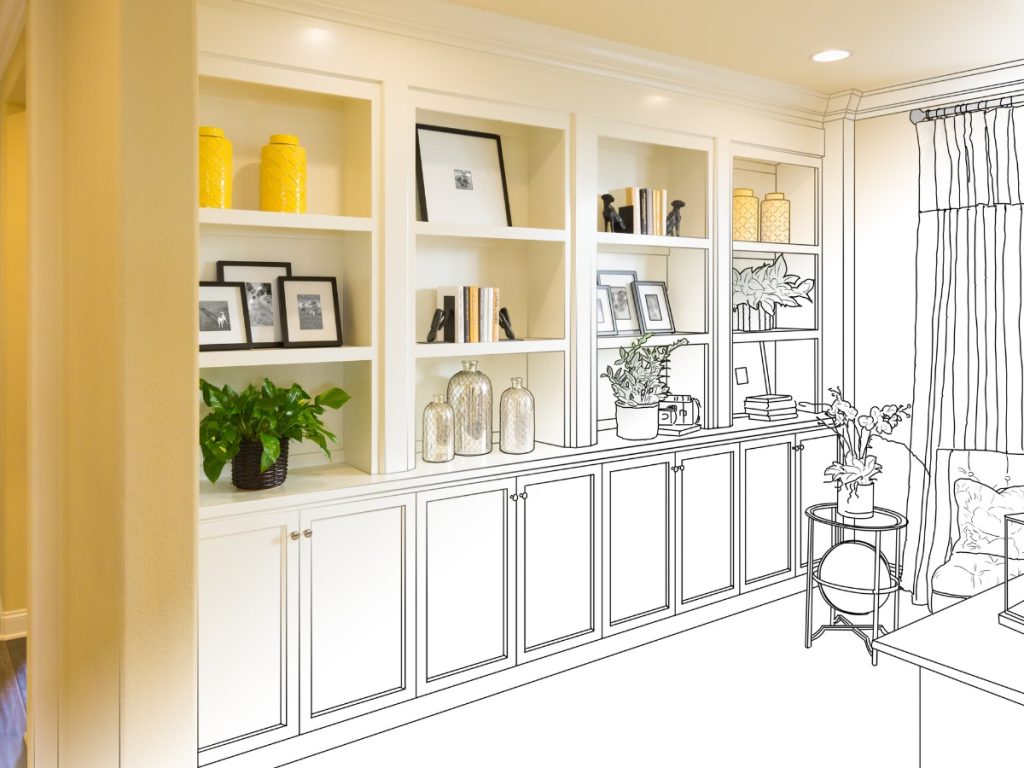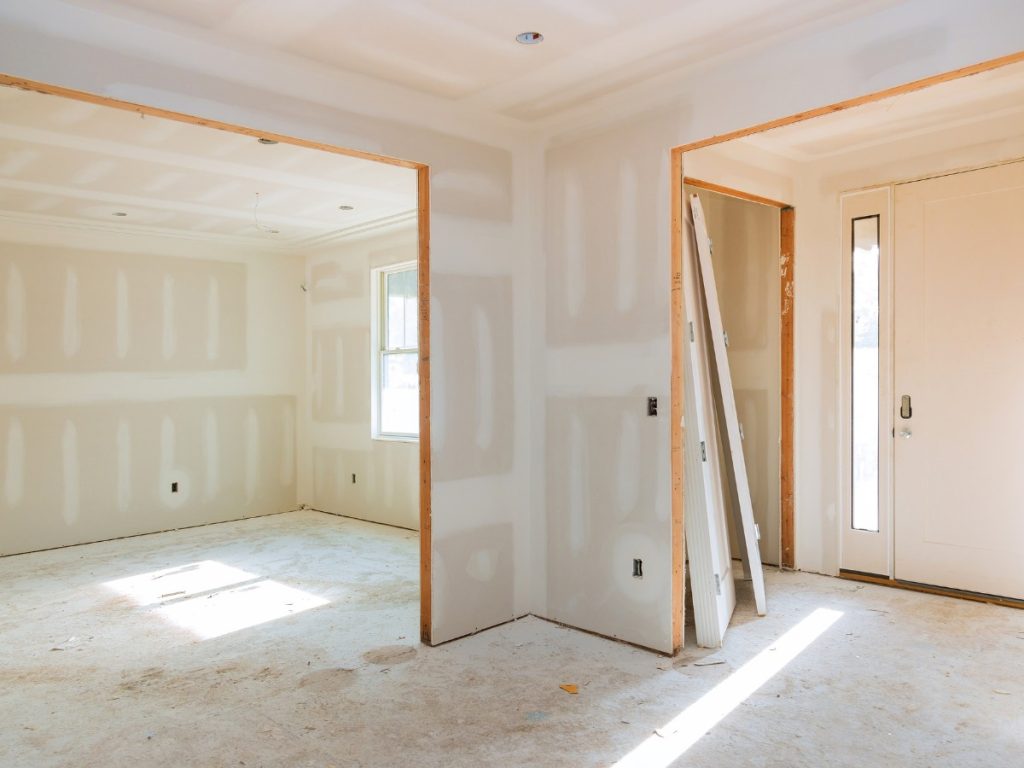When improving your living space, you have two main options: renovating your existing home or building a new one from scratch. Both approaches have advantages and considerations, so weighing the factors before deciding is essential.
In this blog post, we will compare home renovation and new build, explore the essential factors to consider and discuss the pros and cons of each option. By the end, you will better understand which choice is right for you. So, let’s dive in and explore the world of home renovation and new construction.
Comparing Home Renovation and New Build
Before we delve into the details of home renovation and new buildings, let’s briefly compare the two options. Home renovation involves remodeling and upgrading parts of an existing house, while new building refers to constructing a new home.
Whether you renovate or build new, the goal is creating a space that meets your needs and preferences. Now, let’s look at home renovation and understand its potential benefits.
Understanding Home Renovation
Home renovation, also known as remodeling, allows you to update and improve aspects of your existing house. It allows you to work with your existing structure, revamping it to suit your needs better. One of the main advantages of home renovation is retaining the character and charm of an old home while modernizing it.
Understanding New Build
If you’re looking for a clean slate and complete customization, building a new home from the ground up might be your better choice. With new construction, you can design your dream home tailored to your needs and preferences. From the layout and size of the rooms to the choice of materials and finishes, every aspect of the new build can be personalized to create the perfect home.
One of the advantages of new construction is the ability to incorporate the latest technology and modern mechanical systems. You can benefit from energy-efficient appliances, smart home features, and environmentally friendly construction materials. Building a new home also eliminates the uncertainties of an existing structure, as you won’t have to deal with potential problems or limitations of older homes.
Essential Factors to Weigh
Now that we have explored the basics of home renovation and new building, let’s examine some essential factors you should consider when deciding. These factors include evaluating your budget, understanding the time considerations, considering your individual needs and preferences, considering future prospects, and considering local laws and regulations.
Evaluating Your Budget
Your budget is crucial in determining whether home renovation or new build is the right choice for you. It’s essential to assess your financial constraints and understand the average cost of both options. Here are some key points to consider when evaluating your budget:
- Calculate the average renovation or new construction cost based on the current market rates and your project’s specific requirements.
- Consider the square footage cost, as it can vary based on the location, type of construction, and materials used.
Time Considerations
Time is another crucial factor when deciding between home renovation and new build. The duration of the project can have a significant impact on your daily life and living conditions. Here are a few points to consider regarding time:
- Depending on the scope, renovation projects can take anywhere from a few weeks to several months to complete. During this time, you may experience disruptions, such as noise, dust, and limited access to certain parts of your home.
- On the other hand, new build construction typically takes longer, as it involves the entire construction process from the ground up. However, the advantage of new construction is the clean slate it provides, allowing for better days ahead once the project is completed.
- It’s essential to evaluate the length of the project and the potential impact on your daily routine and living arrangements. Consider whether you have the flexibility to accommodate the duration of the project and the associated inconveniences.
- Considering the renovation or new construction timeline, you can make an informed decision compatible with your current living situation and future plans.
Individual Needs and Preferences
Your individual needs and preferences should also guide your decision-making process. Each home and homeowner is unique, so it’s crucial to consider the specific needs of your project and the layout of your current space. Here are a few points to keep in mind:
- Assess the existing house layout and the pros and cons of renovating versus building new. Consider whether the current layout of your home can be optimized to meet your needs through renovation or if a fresh start with new construction is the better choice.
- Evaluate the specific project requirements, such as additional bedrooms, an open-concept layout, or specific design features. Determine whether these requirements can be met through renovation or if building new construction offers more flexibility.
Future Prospects and Benefits
When deciding about home renovation or a new build, it’s essential to consider the prospects and benefits each option offers. Here are some points to consider:
- Building a new home allows for the benefit of energy efficiency. With new construction, you can incorporate the latest advancements in energy-saving technology, such as efficient appliances, proper insulation, and programmable thermostats. This can lead to cost savings on energy bills and a reduced environmental impact.
Navigating Local Laws and Regulations
Navigating local laws and regulations is critical to home renovation and new build projects. Here’s why it’s important:
- Renovating an existing property requires compliance with local laws and regulations, which can vary depending on your area. It’s essential to familiarize yourself with the zoning restrictions, building codes, and permits required for your renovation project.
- Likewise, new build construction must adhere to specific local laws and regulations. Building codes, setback requirements, and other regulations may dictate your new home’s size, height, or layout.
- Consulting with real estate experts, architects, or contractors with experience working in the local area can help you navigate the legal aspect of your project. We can guide you through the process and ensure your renovation or new build complies with all necessary regulations.
- By understanding and complying with local laws and regulations, you can avoid potential setbacks, delays, or legal issues down the line.
Pros and Cons of Home Renovation
Now that we have explored the essential factors to consider when deciding between home renovation and a new build, let’s dive deeper into the pros and cons of home renovation. While renovation can be a great way to update and personalize your existing home, it’s essential to understand the potential benefits and drawbacks before choosing.
Benefits of Renovating
Renovating your home offers several benefits, making it an attractive choice for many homeowners. Here are some of the critical advantages of home renovation:
- Personalization: Renovating allows you to personalize your space to suit your needs and preferences better. You can upgrade specific areas of your home, such as the kitchen or bathroom, to reflect your unique style and functional requirements.
- Cost savings: Renovating an existing property can often result in significant cost savings compared to building new construction. Utilizing the existing structure and systems of your home can help reduce the overall project expenses.
- Retaining character and charm: Renovation allows you to retain the character and charm of an existing home while modernizing it with upgrades. This can be particularly appealing if you are fond of your current property’s history and unique features.
- Improved energy efficiency: Upgrading mechanical systems, insulation, and windows during a renovation project can improve energy efficiency, reducing your carbon footprint and energy bills.
- Enhancement of specific areas: Renovation provides the opportunity to enhance specific areas of your home, addressing any existing shortcomings or functional limitations.
- While home renovation offers numerous benefits, there are also potential drawbacks to consider before embarking on a renovation project.


Drawbacks of Renovating
While renovating your existing home can be rewarding, it’s essential to consider the potential drawbacks and challenges. Here are some of the cons associated with home renovation:
- Disruption of daily life: Renovation projects can disrupt your daily life, as they often involve noise, dust, and temporary displacement of some regions of your home. You’ll need to be prepared for the inconvenience of the construction process.
- Hidden issues: Renovating an older home may uncover existing issues, such as asbestos, outdated wiring, or structural problems, which can lead to unexpected financial constraints and project delays.
- Limitations of the existing space: Renovation of an old house may have limitations due to the existing structure, layout, and space constraints. You should work around these limitations, making compromises on the ultimate vision for your home.
- Cost and financial planning: The renovation cost can vary significantly based on the specific project and upgrades. It’s essential to carefully plan and budget for the renovation, ensuring you have the financial resources to cover the expenses.
- By weighing the benefits and drawbacks of home renovation, you can make an informed decision that aligns with your specific project goals and constraints.
Benefits of Building a New Home
Building a new home offers several benefits that may make it the better choice for some homeowners. Here are some of the advantages of new construction:
- Customization: Building new construction enables the perfect layout and design features. You can work with architects, designers, and builders to create a custom home that meets your preferences and needs.
- Energy efficiency: New construction homes often incorporate energy-efficient features, such as efficient HVAC systems, insulation, windows, and appliances. This leads to cost savings on energy bills and a reduced environmental impact.
- Modern mechanical systems: Building new allows for the integration of the latest technology and mechanical systems, providing reliable and efficient systems throughout your home.
Drawbacks of Building a New Home
While new home construction has advantages, there are also potential drawbacks. Here are some of the cons associated with building a new home:
- Cost: The average cost of new home construction can be higher than renovating an existing property. Evaluating your budget and ensuring you have the financial resources to cover the upfront investment required for new construction is essential.
- Timeline: Building a new home typically involves longer planning, permitting, and construction timelines than renovations. New build construction may not be there may be better choices than ideal choice if your
Making an Informed Decision
Now that we have explored the pros and cons of home renovation and new building, it’s time to make an informed decision that suits your needs and circumstances.
Long-term Planning for Your Home
Long-term planning is also a crucial consideration when making your decision. Here are some factors to keep in mind:
- Structural integrity: Consider the long-term impact of renovation on the structural integrity of your existing house. Renovations should be executed with the future in mind, ensuring the structure remains stable and secure.
- Evolving needs: Long-term planning involves evaluating the potential of new construction to meet your evolving needs. Consider whether renovating will allow you to adapt the existing space as your family grows or if building new construction offers better long-term flexibility.
- Cost of upgrades: Evaluate the cost of upgrades and renovations against the property’s long-term value. Determine whether the potential increase in property value justifies the renovation costs and whether the project aligns with your long-term financial goals.
- By considering your choice’s future prospects and long-term implications, you can make a decision that aligns with your vision of the perfect home.
Both options have their pros and cons. Renovating can be cost-effective and allow you to retain an existing home’s charm and character. However, it may come with limitations and unforeseen challenges. Building a new home offers more flexibility and the ability to design a space that meets your exact specifications, but it can be more time-consuming and expensive.
Ultimately, weigh the pros and cons carefully and consider seeking professional advice to make an informed decision that aligns with your goals and priorities.

